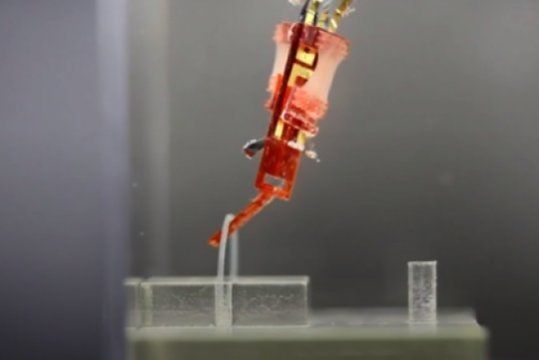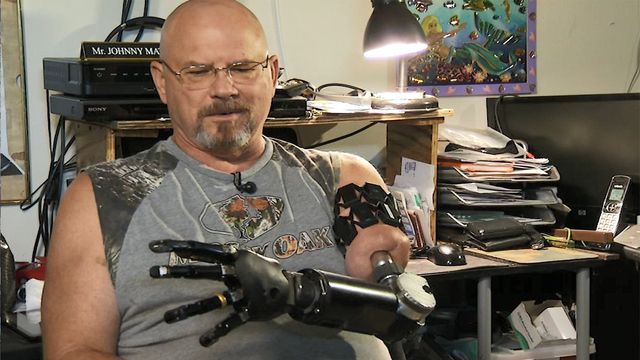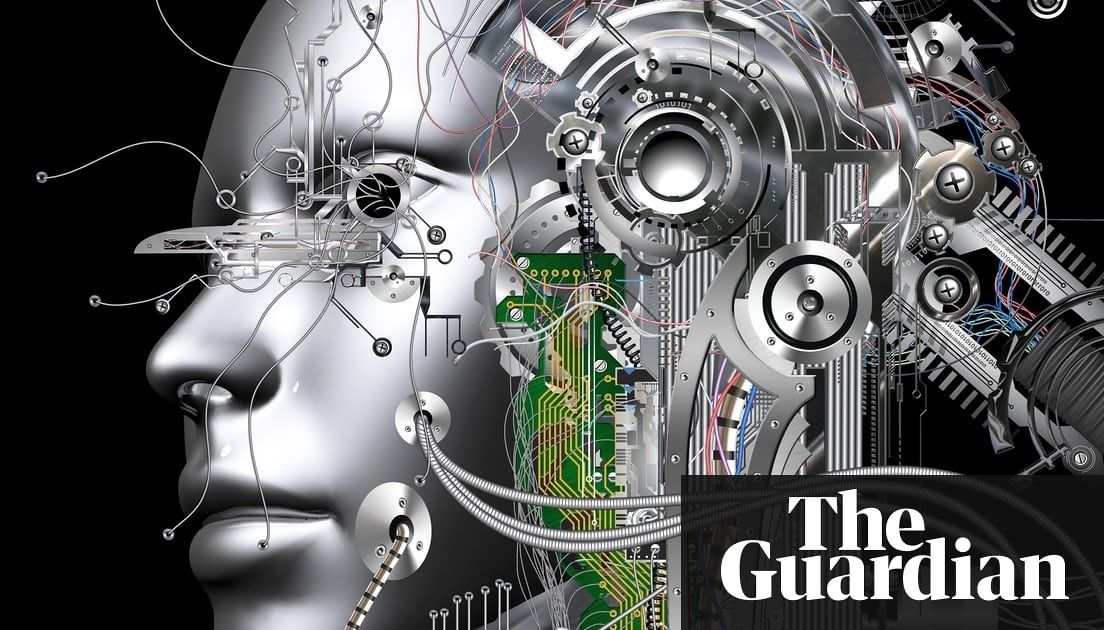This brain implant gives users prosthetic memory that can boost the brain’s short-term recall.
Category: cyborgs – Page 98
Watch Hyper-Realistic Skin Get Made for Bionic Limbs
Watch extremely realistic limbs, complete with hair and freckles, get made from beginning to end.
Why a 19-year-old Bitcoin millionaire built a working Dr. Octopus suit
What would you do if you were a 19-year-old kid with $3.3 million? There are few people more equipped to answer that than teenaged bitcoin millionaire Erik Finman. His answer? You use some of that cash to build a Doctor Octopus-style exosuit and try and shake up the education system.
The power of prosthetics
Artificial fingers for doing everything naturally.
Playing piano with a mind-controlled robotic arm
The arm/hand probably intended for the ATLAS robot. I’d be curious if they are already playing with attaching it on to the robot.
The first person to live with a mind-controlled robotic arm is teaching himself piano. Johnny Matheny has spent the last five months with an advanced prosthetic, designed to replace the human hand and arm.
The robot arm is part of a research project run through the Johns Hopkins University Applied Physics Lab, and funded, in part, by the US Department of Defense. Data that researchers collect could revolutionize future mind-controlled robotics.
This is the second video in a series following Johnny has he spends the year with the arm.
Watch the arm being delivered: https://youtu.be/xKUn0-Bhb7U
World’s first 3D-printed cornea made from algae and human stem cells
The human eye is a remarkably sophisticated organ and like the lens to a camera, it’s the cornea that focuses the flood of photons into a perceptible image. But for an estimated 15 million people around the world, eye disease and trauma make surgery the only path to clear vision.
In the next few years, artificial corneas may become more accessible thanks to new research out of Newcastle University in the United Kingdom. There, researchers mixed stem cells from the cornea of a healthy donor with collagen and algae molecules to create a bio-ink, which they 3D-printed into an artificial cornea. The research is currently just a proof-of-concept but lays the groundwork for future techniques to create low-cost, easy-to-produce bionic eyes.
There were three features required for the bio-ink, according to Che Connon, a professor of tissue engineering at Newcastle.

Cometh the cyborg: Improved integration of living muscles into robots
The new field of biohybrid robotics involves the use of living tissue within robots, rather than just metal and plastic.
Researchers have developed a novel method of growing whole muscles from hydrogel sheets impregnated with myoblasts. They then incorporated these muscles as antagonistic pairs into a biohybrid robot, which successfully performed manipulations of objects. This approach overcame earlier limitations of a short functional life of the muscles and their ability to exert only a weak force, paving the way for more advanced biohybrid robots.

Exoskeleton Technologies
Exoskeleton technologies can bring new capabilities to fighting forces and improve endurance and safety in industrial settings. Lockheed Martin continues refinement of next-generation industrial products with primary focus on powered exoskeletons. Lockheed Martin’s new lower-body exoskeleton has demonstrated to increase mobility. By reducing the effort in walking and climbing this technology can literally help soldiers and first responders go the extra mile while carrying mission-essential equipment.

Florida man tests world’s first fully mind-controlled artificial arm
He now officially owns them! #CyborgsRule
Port Richey, Fla. (WOFL FOX 35) — Johnny Metheny sits at an electric piano in his Port Richey home self-teaching himself the song Amazing Grace. Johnny’s never played before, but he’s determined to master the song. He plays through fairly well with his right hand.
“That side I got down pretty good,” said Metheny.
Then he raises his left hand to the keyboard, the hand he’s only known for a few short months, and that he never thought he’d be raising. The world’s first fully mind controlled artificial arm.

Mark O’Connell: five books to understand transhumanism
As humans, we are defined by, among other things, our desire to transcend our humanity. Mythology, religion, fiction and science offer different versions of this dream. Transhumanism – a social movement predicated on the belief that we can and should leave behind our biological condition by merging with technology – is a kind of feverish amalgamation of all four. Though it’s oriented toward the future, and is fuelled by excitable speculation about the implications of the latest science and technology, its roots can be glimpsed in ancient stories like that of the Sumerian king Gilgamesh and his quest for immortality.
Will humans ever conquer mortality by merging with technology? The 2018 Wellcome prize winner shares his favourite books on transhumanism, from a cyborg manifesto to a Don DeLillo novel.